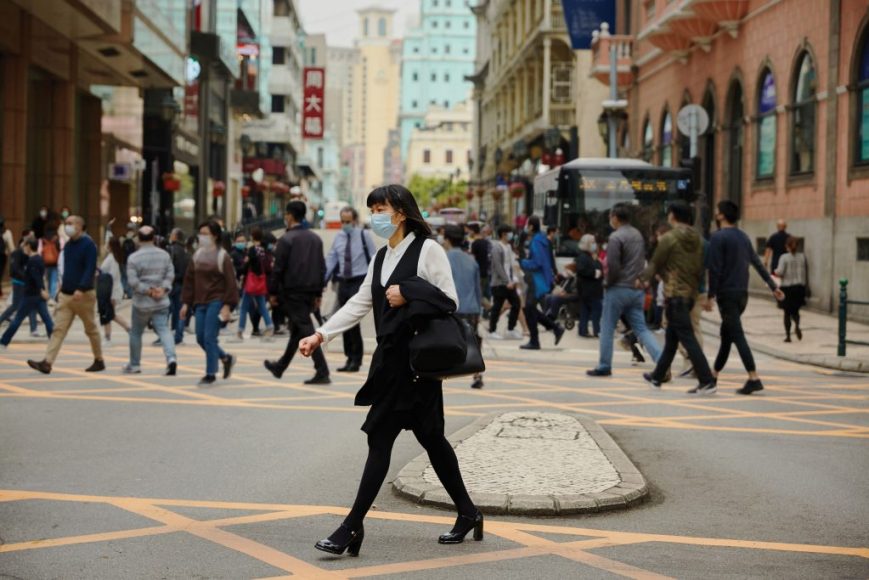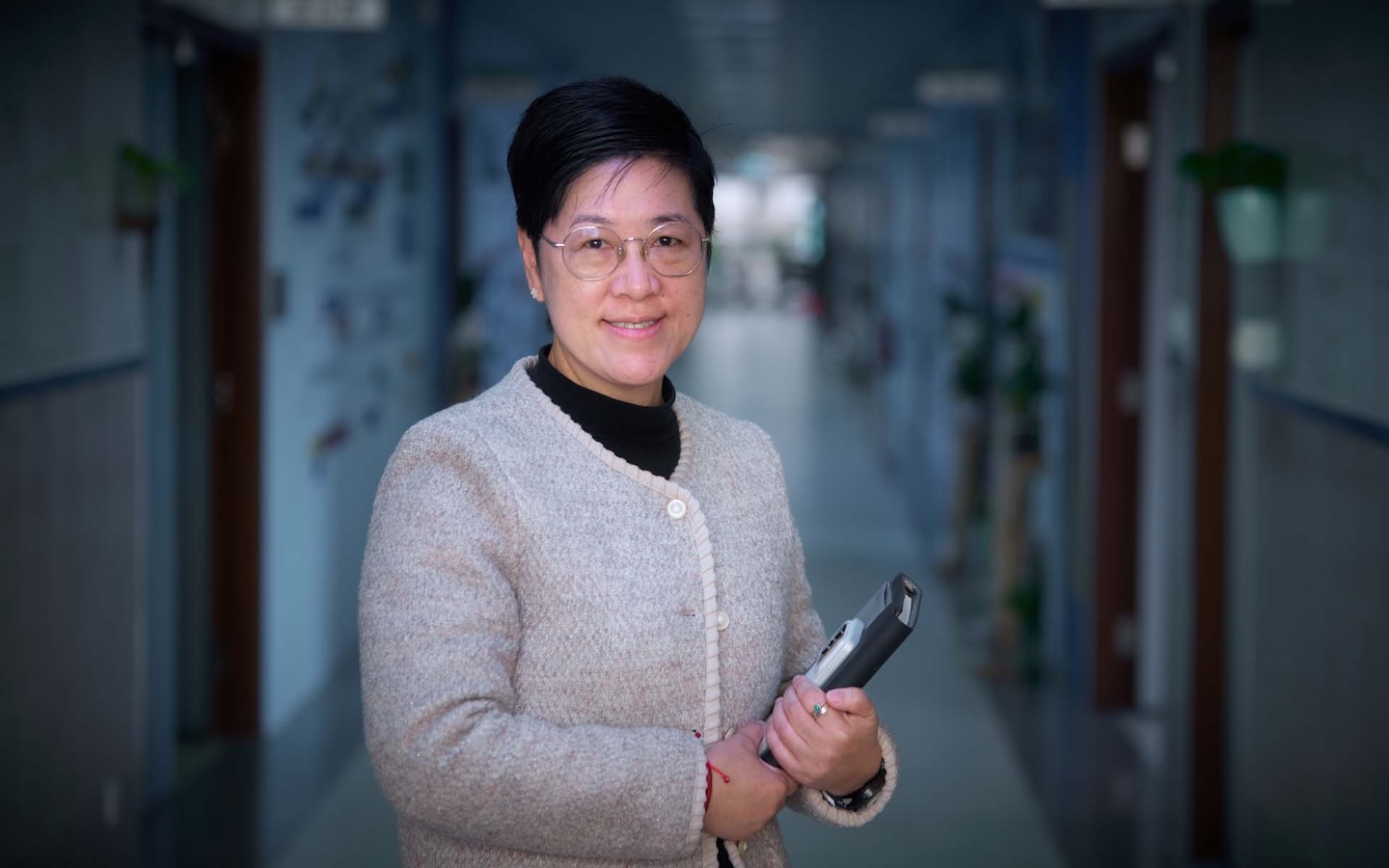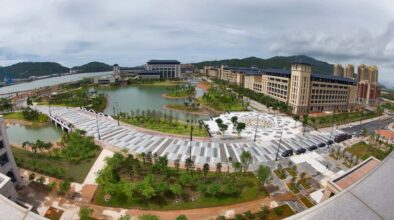TEXT Tony Chouin Lai, Rafelle Marie Allego and Cathy Lai
Since Macao’s first COVID-19 case was announced in January, the city’s government and people have pulled together and shown courage in the face of a crisis. While the epidemic may not yet be over in the territory, we create a picture of what it’s been like in Macao over the past two months.
Over the past few months, the world has entered uncharted territory. As the new coronavirus has spread its wings so too has fear, uncertainty and, at the same time, a sense of community and courage in the face of adversity, no matter where you are experiencing this pandemic across the globe. And it’s been no different in Macao. In fact, the city has shown the world how it’s possible to battle the spread of the virus if everyone in society pulls together as a team.
As this story was posted online, the ‘end’ was not yet in sight and the fight to battle the virus epidemic was still ongoing due to new imported cases but, despite this, it’s worth looking back over the past couple of months to show how the city has coped and worked together during what is now a serious global crisis.
At the turn of the year, the coronavirus was largely unknown. But it wasn’t long until it was identified as the coronavirus disease 2019 – or COVID-19, as it has been labelled by the World Health Organisation (WHO) (in Mainland China, the disease is known as ‘novel coronavirus pneumonia’). It was first reported in the central China region between December and early January and, as that happened, many people in Macao grappled with a distant sense of déjà vu, especially those who’d lived through the famous public health alert of 2003. During the epidemic outbreak of severe acute respiratory syndrome – better known as SARS – 17 years ago, which infected more than 8,000 people and claimed nearly 800 lives in 29 countries and regions, the city had remained mostly unscathed except for one imported case when southern China was embroiled in the virus spread.
The city’s prevention efforts, under the leadership of the government and with the support of the community, have effectively contained the spread of the virus.
However, from 22 January, it was plain to see that this new outbreak in town was on a completely different level. According to the European Centre for Disease Prevention and Control under the European Union, hundreds of thousands of COVID-19 cases and thousands of deaths have been reported in 120-plus countries and regions, leading to the WHO designating the spread as a pandemic on 11 March. The outbreak, which has spread from Asia to other parts of the world in a matter of weeks, has caused – and will continue to cause for some time yet – major disruptions to the daily life of millions with curfews imposed, heightened border restrictions and subsequent economic damages. And that’s not to mention the death of loved ones to the virus.
Macao, which has established itself as a major tourism destination over the past decade, faced a battle from 22 January, which was the day the first COVID-19 case was confirmed in the city. From that moment, a sense of gloom hung over the territory with the tally surging to 10 in the following two weeks and the approaching of the Chinese New Year holiday that would have meant crowd gatherings and an influx of visitors. But the situation has largely stabilised since 4 February, thanks to the comprehensive and timely response by the government alongside the support and collaboration from all walks of society to curtail the virus infections.
There have been new cases in the city since 15 March after the SAR had stayed virus-free for nearly 40 days. As of 31 March, the number of total cases stood at 41 with the last case being announced on 31 March of a 20-year-old man who had been studying in the UK. Macao has survived some of its worst days in recent memory through strength, determination, effective measures by the government and a sense of community unity like never before.

A quick-acting government
As soon as the first COVID-19 cases emerged in Wuhan, Hubei province, Macao’s government went on the defensive. And it has kept its guard up since early January with temperature screenings at border checkpoints and constant communications with the health authorities in Mainland China. A day before the first local case was reported on 22 January, the administration announced in a dispatch the establishment of the Novel Coronavirus Response and Co-ordination Centre, directly headed and supervised by Chief Executive Ho Iat Seng with the Secretary for Social Affairs and Culture, Ao Ieong U, as the vice-chairperson.
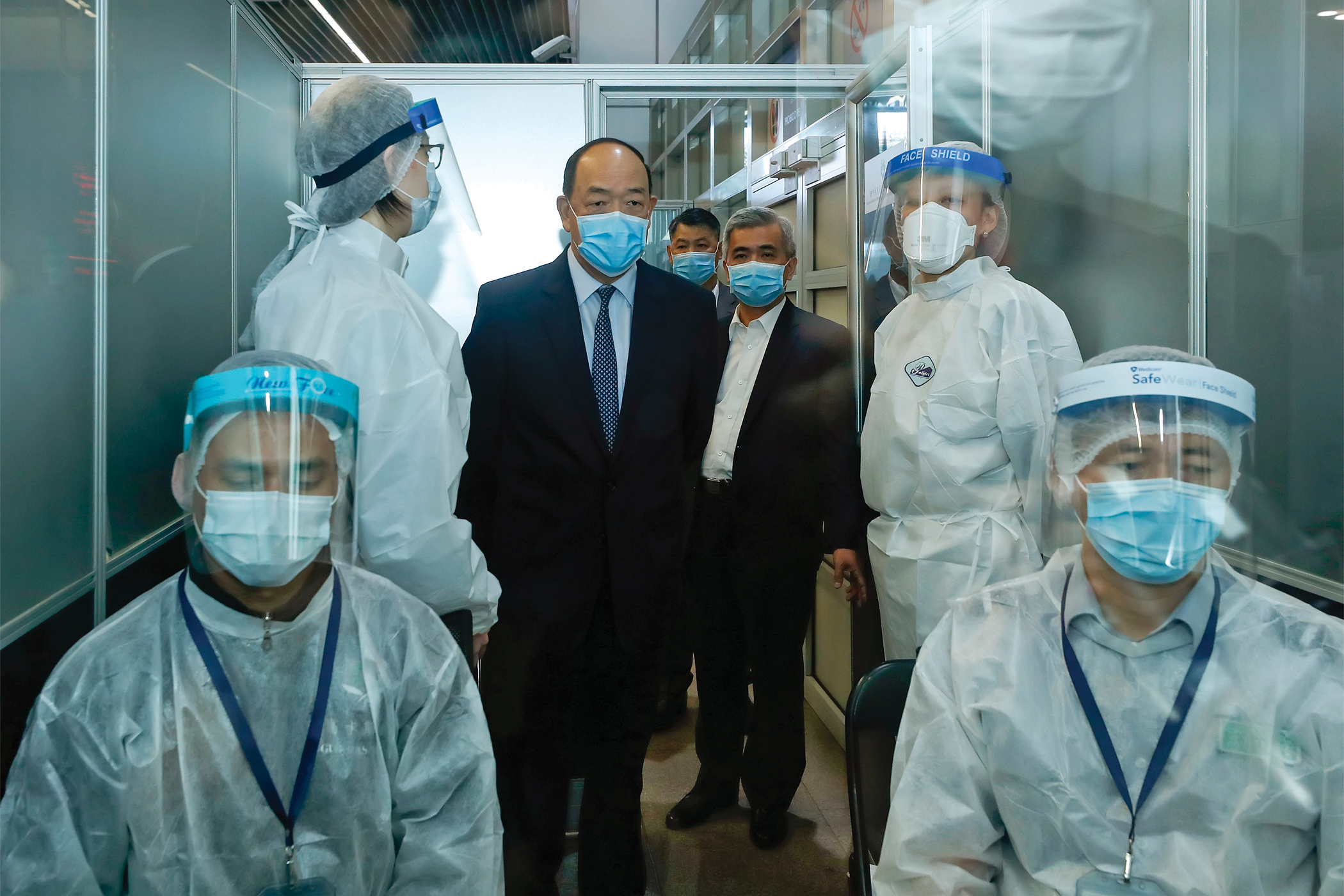
January | Photo by Government Information Bureau (GCS)
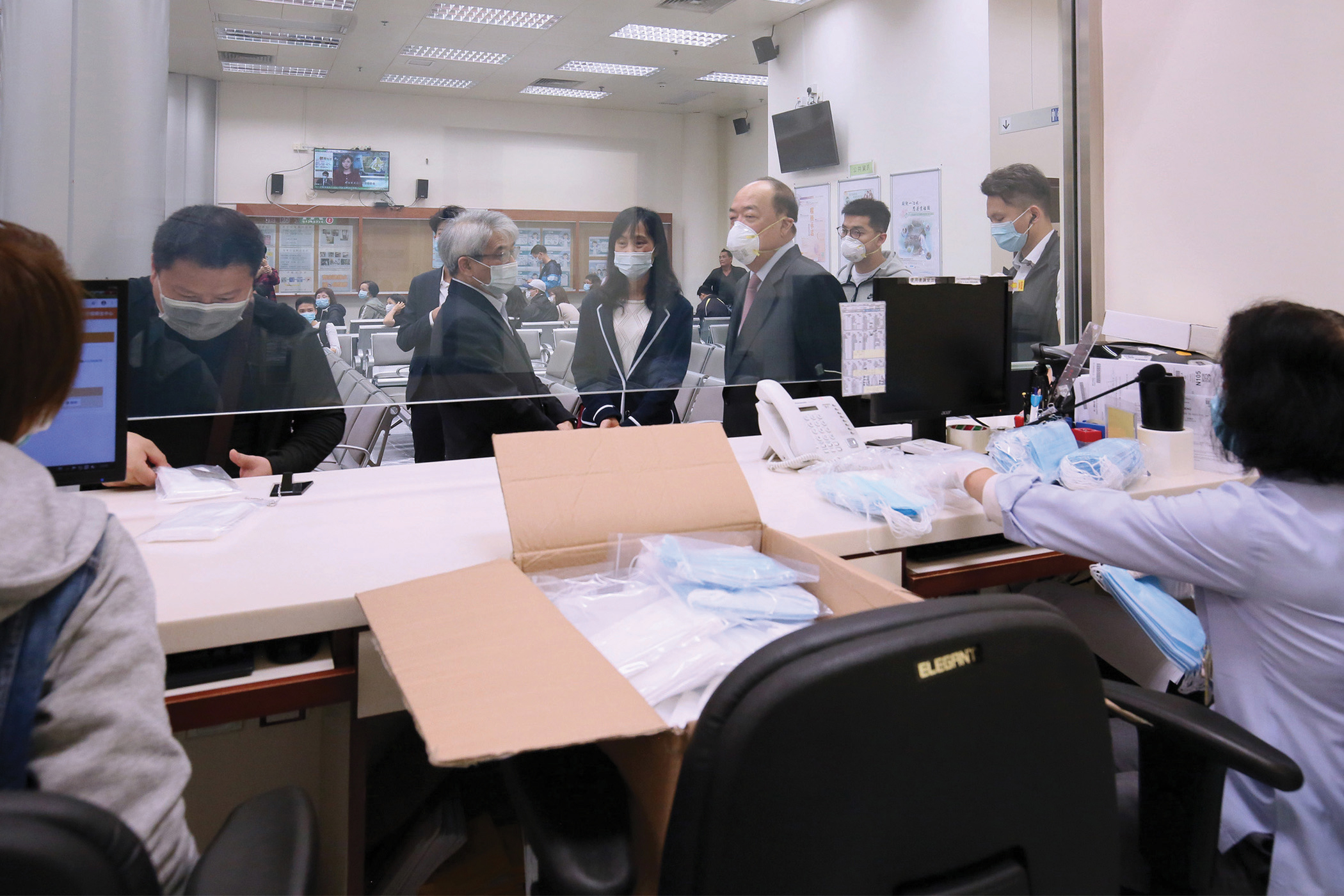
The centre – comprising more than 20 representatives from government departments like the Public Security Police Force, the Health Bureau, the Economic Bureau and the Macao Government Tourism Office (MGTO) – is in charge of planning, guiding and co-ordinating public bodies and private entities to carry out works for the prevention and control of the virus spread. Operating around the clock, the centre has the capacity to adopt different measures to impede the coronavirus spread after constantly assessing the latest virus situation, the government dispatch said.
Shortly after the opening of the centre, on 5 February, Chief Executive Ho addressed the city in an open letter to Macao’s nearly 680,000 inhabitants. In the letter, he pledged to protect the people’s health and life ‘at all costs’, also ensuring public order and security so that the territory could return to normality as soon as it could. He thanked the people for their ‘understanding and support’ and also expressed his gratitude to public servants’ ‘arduous’ work in preventing and fighting the virus.
Given Mainland China, in particular the central Chinese province of Hubei, was hit the hardest by the disease at the onset, with more than 81,518 cases reported as of 31 March, the coronavirus response centre promptly imposed border restrictions at the checkpoints with the Mainland in the early stage. The government announced on 23 January that it has collaborated with nearby Zhuhai city in Guangdong province to forbid any person with symptoms of fever travelling across the border. Since 27 January, the opening hours of the Macao-Zhuhai Gongbei Border Gate – the city’s largest border checkpoint in terms of visitor traffic – has been shortened, while individuals who have visited Hubei province in the past 14 days or people from the central Chinese province cannot enter Macao except with the presentation of medical certificates proving they are virus-free.
The strategies to limit the movement of travellers across the border also apply to non-local workers and residents. All migrant workers who have visited Mainland China in the past two weeks before arriving to Macao have undergone 14 days of quarantine in designated locations either in nearby Zhuhai or in the territory since 20 February. Residents travelling to and from Macao and Zhuhai ‘multiple times’ a day, as well as individuals who have been to several parts of the Mainland in the past 14 days, have to undergo a medical examination that may last from between six to eight hours upon arrival in the city.
As the virus has moved beyond China with a spike in the number of confirmed cases in other parts of the world over the past few weeks, the Macao government has reviewed and gradually stepped up its restrictions at border checkpoints. As of 24 March, Macao has barred entry for all non-residents, and residents from Hong Kong and Taiwan will have to undergo a 14-day quarantine upon entry to the city. A government statement dated 18 March noted the latest string of measures is to ‘safeguard the health of Macao residents’ given the continuous surge of confirmed cases in other parts of the world. Other than restricting the flow of visitors across the border, the administration has also launched an array of measures to minimise the mobility within the city.
In the early stage of the outbreak, the government cancelled all the festivities scheduled for the CNY holiday in late January to avoid crowd gatherings, as well as the closure of parks, mountain tracks, public leisure areas, public libraries and museums since early February. These have all since reopened to the public.
The non-emergency service of all public bodies was suspended from the CNY holiday until 16 February and all local schools have been closed since the CNY holiday. Though public bodies have gradually resumed operation from 17 February amid signs of stabilisation in the city and across Mainland China, anyone and everyone still has to wear a facemask, fill in a health declaration form and accept a temperature check before entry, while all passengers have been required to wear masks on buses and the Light Rapid Transit (LRT) railway since earlier in the same month.
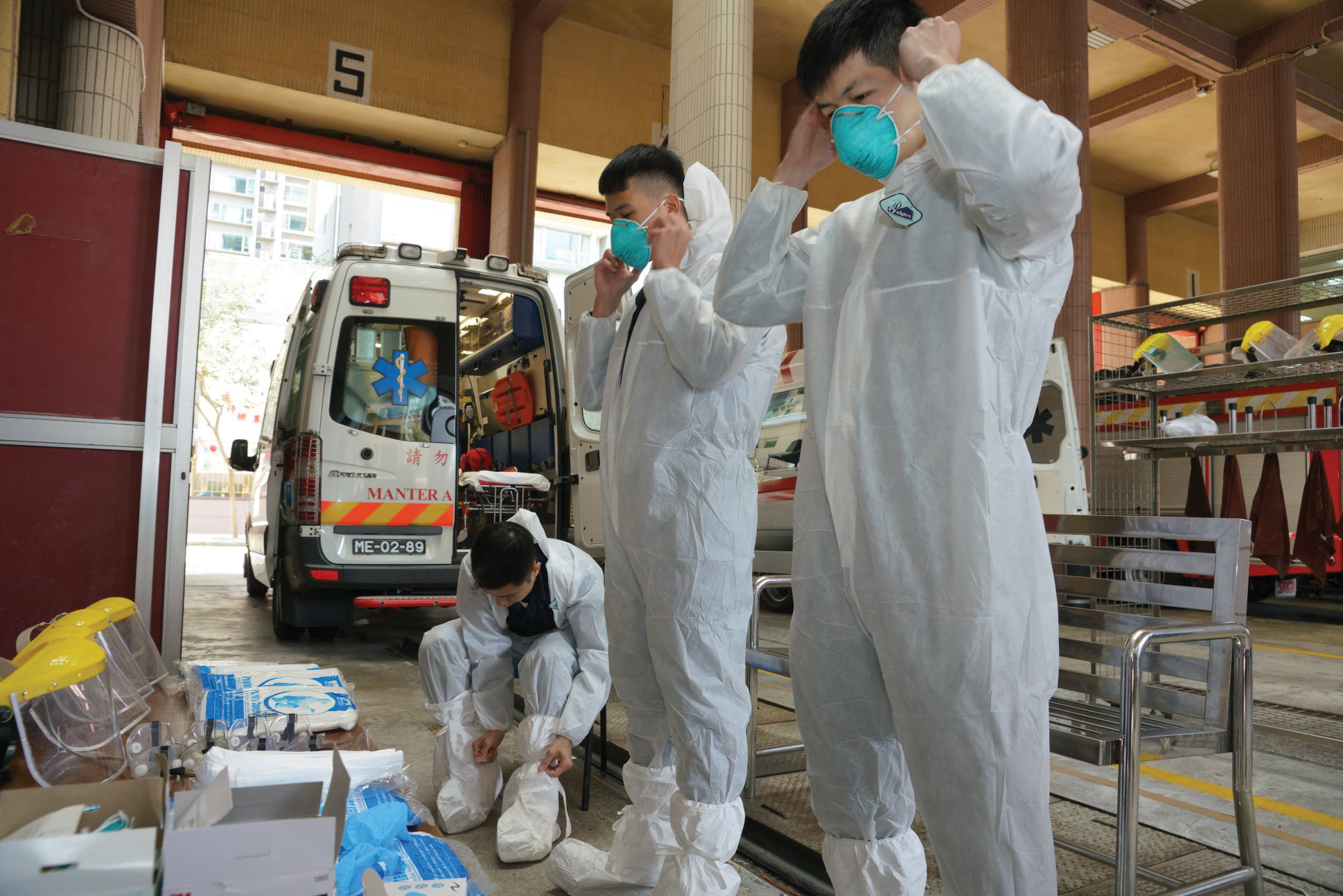
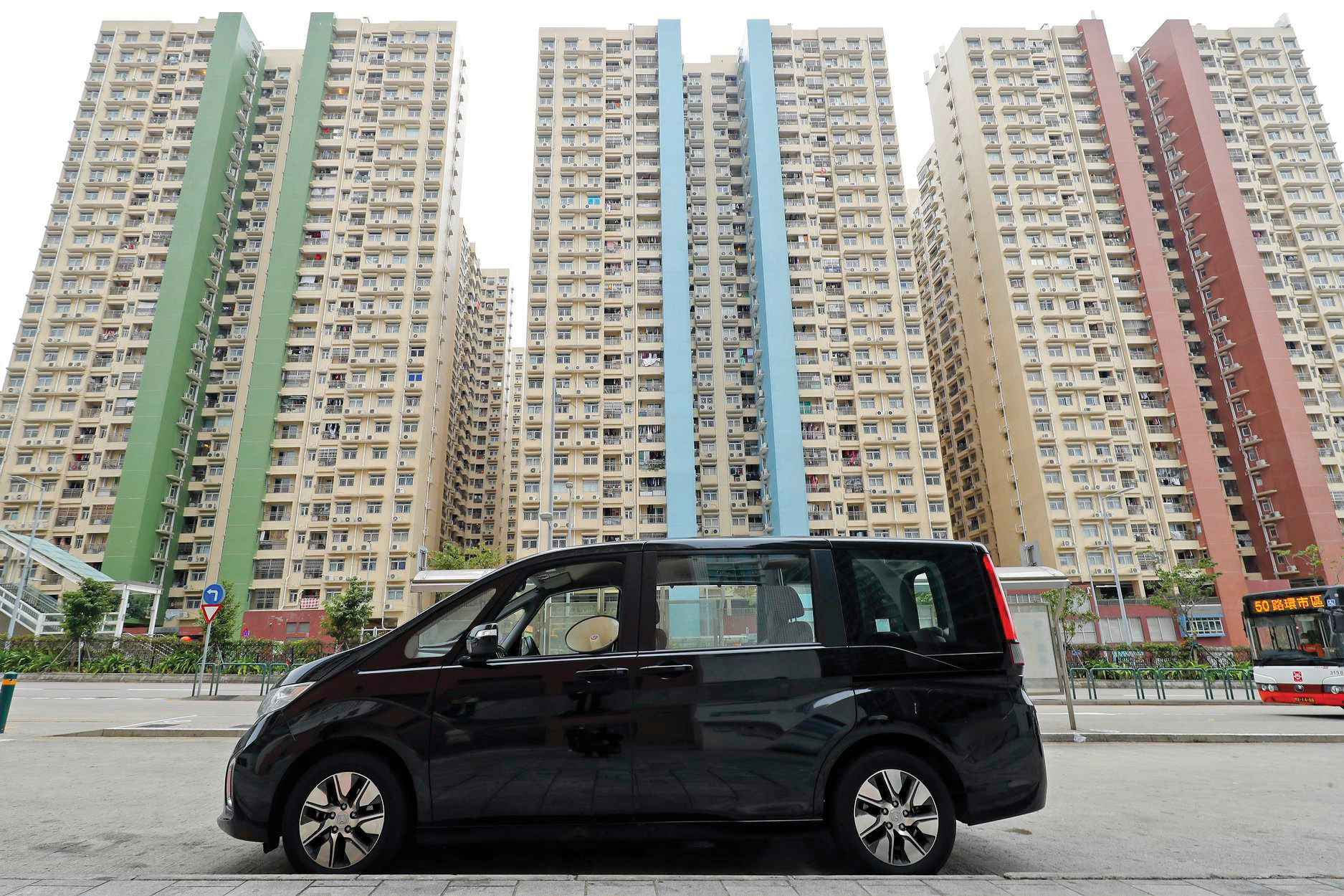
Macao’s Higher Education Bureau (DSES) said in a statement on 18 March that six of the city’s 10 tertiary education institutions will gradually resume on-campus classes on 1 April. According to the statement, the Macao Polytechnic Institute (IPM), Macao Institute for Tourism Studies (IFTM), Public Security Forces Academy, University of Saint Joseph (USJ), Kiang Wu Nursing College and Macau Institute of Management will gradually restart classes on 1 April.
Macao’s primary, secondary and tertiary education institutions have been closed since Chinese New Year in late January. However, many of them have been conducting online lessons in the meantime.
The government attaches great importance to reassuring the public and enhancing their awareness of the disease in combatting the pandemic. The Novel Coronavirus Response and Co-ordination Centre has held a daily press briefing since its inception with all the relevant information available on its official website and across social media platforms. Private vans and automobiles with loudspeakers have also run across the city to remind the public to stay indoors and be vigilant. The government – which has notably kept a permanent supply of food and essentials coming into the city – has also published the daily quantity of imported fresh food since the start of the outbreak to keep ‘panic buying’ at a minimum. Maintaining a high degree of information transparency, the government also ensures the supply of facemasks for residents and migrant workers with a dedicated purchase scheme to alleviate public anxiety about the protective supplies.
One measure that was taken by the Hong Kong government for a period after 4 February was the suspension of ferry sailing services between Hong Kong and Macao. And at the 16 March’s regular press conference, Inês Chan Lou, who heads the Licensing and Inspection Department of the Macao Government Tourism Office (MGTO), announced that from 17 March to 31 March, the government was offering transport to Macao for Macao residents who arrive at Hong Kong’s airport from Europe.
The offer came after the Hong Kong government previously announced that, with effect from 17 March, all those who have been to any of the nations in the Schengen Area – an area comprising 26 European countries, from Norway to Portugal – within the past 14 days prior to their entry into Hong Kong will have to go into quarantine for 14 days there. By 23 March, the Hong Kong Chief Executive Carrie Lam had announced non-residents would be completely banned from entering the city for 14 days. Macao’s government previously announced that with effect from 18 March, all those who have been to the Schengen Area within the past 14 days prior to their entry into Macao will have to stay under medical surveillance for 14 days.
Harald Brüning, The Macau Post Daily newspaper director, says that Chief Executive Ho Iat Seng’s recent order to impose a blanket ban on foreign visitors ‘appears, at first glance, to be rather draconian’ but ‘it’s absolutely necessary to protect our city from the novel coronavirus menace’. He says: “Drastic measures are, in my view, the best way of tackling a virus that is not only highly infectious but, apparently, has the morbid predilection to kill the elderly with underlying health issues, a situation that calls for civil society’s commitment to collective responsibility and solidarity among different generations.” Brüning adds that Macao ‘has so far been the central government’s best pupil’ in the fight against the spread of COVID-19.
Patient recoveries
Treatment has also been an important part of this fight. A coronavirus isolation ward was set up at the public Conde de São Januário Hospital Centre for treatment of all COVID-19 patients in the city. The public health centre in Coloane, the Hotel Pousada Marina Infante in Taipa, the Golden Crown China Hotel, which sits opposite to the local airport in Taipa, the Regency Art Hotel also in Taipa, the Grand Coloane Resort by the Hac Sa beach, the Metropole Hotel, the Treasure Hotel, San Tung Fong Commercial Inn South Wing, the Grand Lapa hotel, Grand Harbour Hotel, Royal Dragon Hotel, Jai Alai Hotel and Sheraton Hotel in Cotai are being used for quarantine as of 31 March.
The newly completed School of Nursing Building of the Islands Medical Complex, as of 30 March, will also be used by health authorities as a temporary isolation centre for those under medical observation through close contact with patients infected with the novel coronavirus or are considered at high risk.
All the first seven cases reported between 22 and 27 January were individuals from Hubei travelling to Macao before testing positive for the coronavirus. The following three cases were Macao residents, including a 29-year-old woman who works in the floral department of an entertainment complex and a 57-year-old male who works as a coach driver for a local gaming operator. The first case in the city after being virus-free for nearly 40 straight days was discovered on 15 March. The imported case was a Korean flight attendant based in the city, who had come back from Portugal with her boyfriend. The following cases quickly unravelled over the following days with the return of hundreds of residents coming from high-risk COVID-19 countries such as Portugal, the UK and Australia.
Except for the latest cases, all the first 10 patients were discharged from hospital, with the last one recovering and leaving on 6 March. According to a message relayed by the Macao government on 6 February, the first confirmed case here, a 52-year-old Wuhan woman, expressed gratitude for the care of Macao medical professionals during her stay. The message read: “I feel warm and moved and [they] have treated me like I’m part of the family. Coming to Macao is one of the fortunate things among the misfortunes in my life.”
Business matters
All the measures taken by the Macao authorities and the central government to curtail the outbreak have been effective. But the strategies also have significant implications for Macao businesses and the tourism-reliant economy that welcomed 39.4 million visitors last year. Mainland China has stopped issuing new visas under the Individual Visit Scheme (IVS) for those from the Mainland to visit Macao since late January, as well as suspending all overseas tour groups including package tours to the city. Together with heightened border restrictions, the Macao tourism market – with 70 per cent of total visitors coming from the Mainland – has suffered a major blow. According to the official data, the number of visitors to Macao last month plunged by 95.6 per cent year-on-year, deepening a decline of 16.8 per cent in January when the coronavirus had not yet made a profound impact.
Aggravating the situation is another extraordinary move adopted by the local authority to fight COVID-19: the temporary closure of the gaming establishments, which was announced by Chief Executive Ho Iat Seng at the start of February. All 41 gaming venues were ordered to shut down between 5 and 19 February to minimise the risks of cross infections. Though it was not the first time all gaming venues in the city have come to a halt – the operation was suspended for 33 hours when Typhoon Mangkhut hit the city in 2018 – the actual duration was unprecedented.
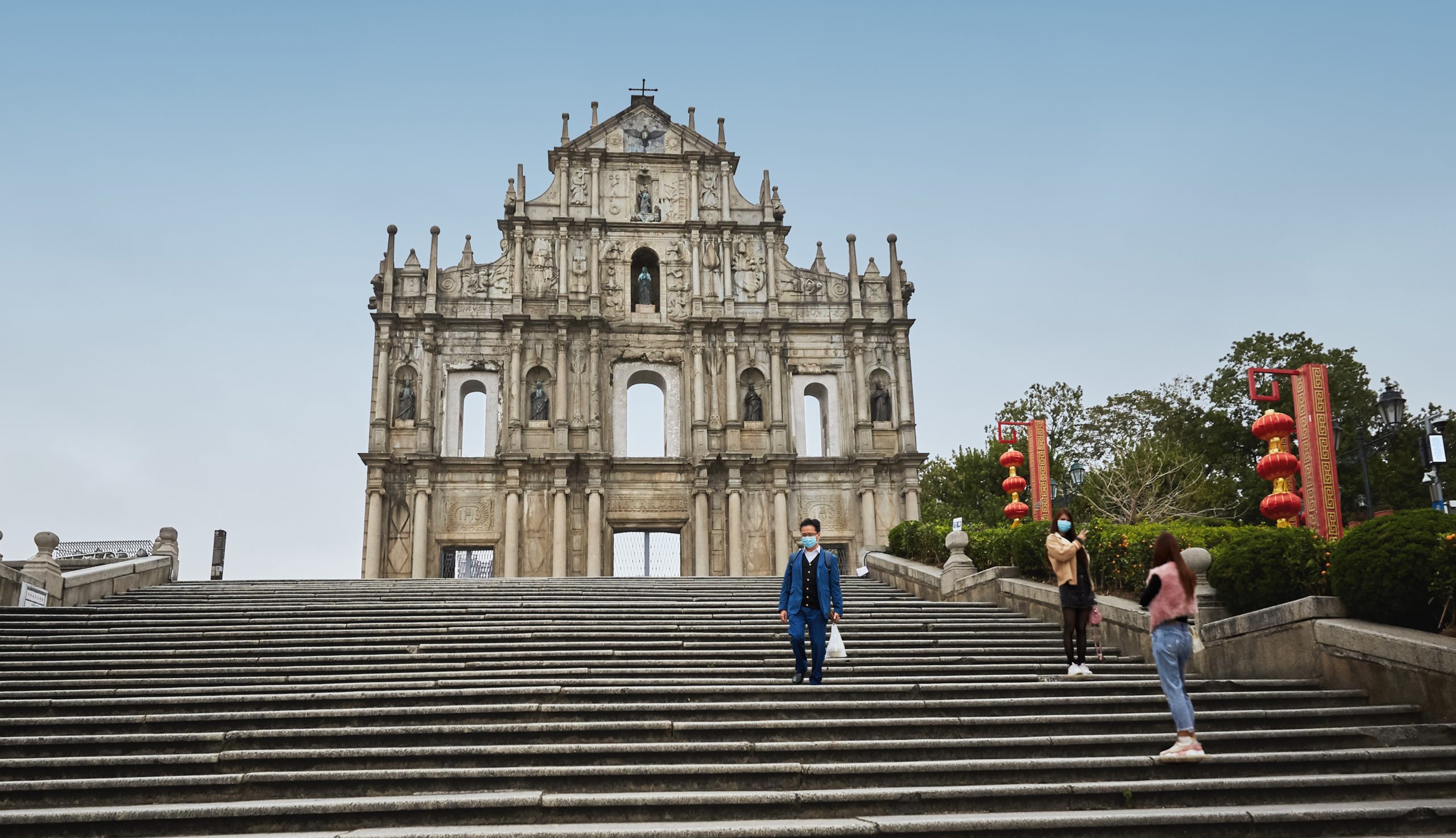
The gaming sector, accounting for a whopping share of about 85 per cent of the government income, has thus far crashed. Figures from the gaming regulator DICJ show that gross gaming revenue fell drastically by 87.8 per cent year-on-year to MOP 3.1 billion (US$387 million) in February, the largest decline on record, after a decrease of 11.3 per cent in January. The performance in the next few months is still expected to be poor because most travel and border restrictions have remained in place while the entertainment complexes have reopened since 20 February with only half of their existing gaming tables in operation to ensure the health of workers and gamblers. “The industry will have varied rates of recovery,” says Eric Coskun, director of casino projects at Macao-based gaming consultancy IGamiX Management and Consulting Ltd. “Mass gaming will take quite some time to get back to pre-COVID-19 levels and, as such, the operators need to put together some irresistible packages for hotel rooms and other amenities.”
As more than one-fifth of Macao’s local labour force is employed in the gaming sector, local officials have gone to great lengths to urge all the six gaming operators in the city not to sack any workers, cut salaries or force them to take unpaid leave, guaranteeing local employment to overcome the tough times together. And the operators have so far apparently heeded the government’s call.
According to Galaxy Entertainment Group, its gaming staff were placed on standby at home during the 15-day gaming closure, while some workers remained on duty. “In light of the outbreak of COVID-19,” says Buddy Lam, senior vice-president of public relations at Galaxy Entertainment Group, “GEG has been working closely with the relevant departments to adopt and support all protective measures laid out by the Macao SAR government.”
“The company’s existing measures to protect the health of guests and team members during this medical crisis,” says Wilfred Wong, president of another gaming operator, Sands China, “are being strictly enforced and will continue to be monitored and strengthened as necessary. Sands China stands together with the people of Macao as the city unites to safeguard the health and safety of the public. We will fight this virus all together. The city will recover and life will go back to normal soon.”
Not only have the gaming operators worked hard to resume normal business volume but so have Macao’s other business sectors. In addition to gaming venues, other entertainment venues – namely, salons, cinemas, gyms, bars and nightclubs – were also ordered by the government to suspend operation in February until reopening on 2 March. During the gaming hiatus, a total of 29 hotels also closed their doors due to the shortage of visitors. Most of these, though, have gradually reopened alongside the gaming venues.
Although the atmosphere has been tense, the community has remained in an orderly manner as residents are confident with the government.
However, many small and medium-sized enterprises (SMEs), particularly those in tourist districts like the city’s downtown, are facing some tough times due to the pandemic. Local SMEs face huge financial pressure as they are struggling with lower income and running expenses like rents and salaries for workers at the moment, illustrates Lei Cheok Kuan, chairman of the Industry and Commerce Federation of Macau Central and Southern District. “Some SMEs have closed for about a month over the lack of customers,” he says. “Although there have been signs of stabilisation [in Macao and Mainland China], it’s difficult to predict when the Mainland economy will recover and hence the Macao tourism.”
One of the bright lights is the MOP 3,000 (US$375) electronic vouchers permanent and non-permanent residents are entitled to with the aim of boosting local consumption and driving the business volume of local SMEs. Residents can use the consumption e-cards between May and July with a daily threshold of MOP 300 (US$37.50).
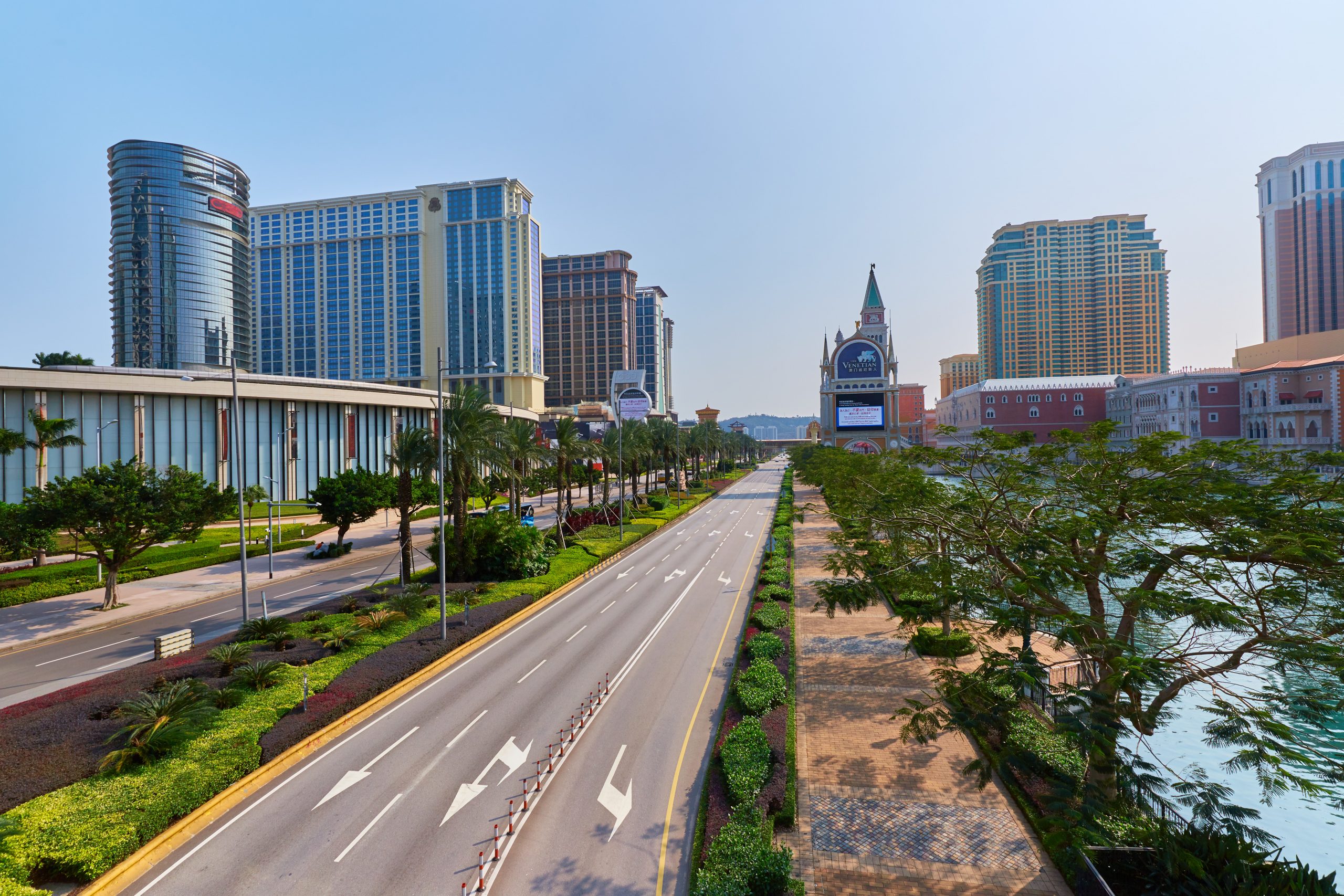
A united front
From securing mask supplies and gaming establishment closures to a wide range of financial support measures, the works of the government in this combat of COVID-19 have been widely acknowledged and praised by the public. An online survey, called ‘Opinions of Macao Residents on COVID-19’, conducted by the Macao Polling Research Association between 6 and 14 February shows nearly 88 per cent of 3,236 interviewees expressed satisfaction towards the administration during this health crisis, while 97.5 per cent regarded the information provided by the government as ‘helpful’. More than 90 per cent of the subjects polled also indicated they now wear facemasks all the time and wash their hands more often than before, while 84.6 per cent have expressed confidence that the virus situation in Macao would be under control, according to the association.
This public confidence could not be cultivated with the government’s endeavours alone but also the community participation from large corporations and prominent associations to individuals. “There’s no doubt that this novel coronavirus has affected the daily life of residents but they have been willing to co-operate with the government to prevent the virus outbreak in the community,” says Ng Siu Lai, president of the board of directors at the General Union of Neighbourhood Associations of Macao, also known as ‘Kai Fong’ in Cantonese. “Although the atmosphere has been tense,” she says, “the community has remained in an orderly manner as residents are confident towards the government.”
In a bid to alleviate public anxiety about the mask supply and shortening the public time for queuing, Ng’s group and two other community associations – the Macao Federation of Trade Unions and the Women’s General Association of Macao – have assisted the government in selling masks for residents and non-local workers.
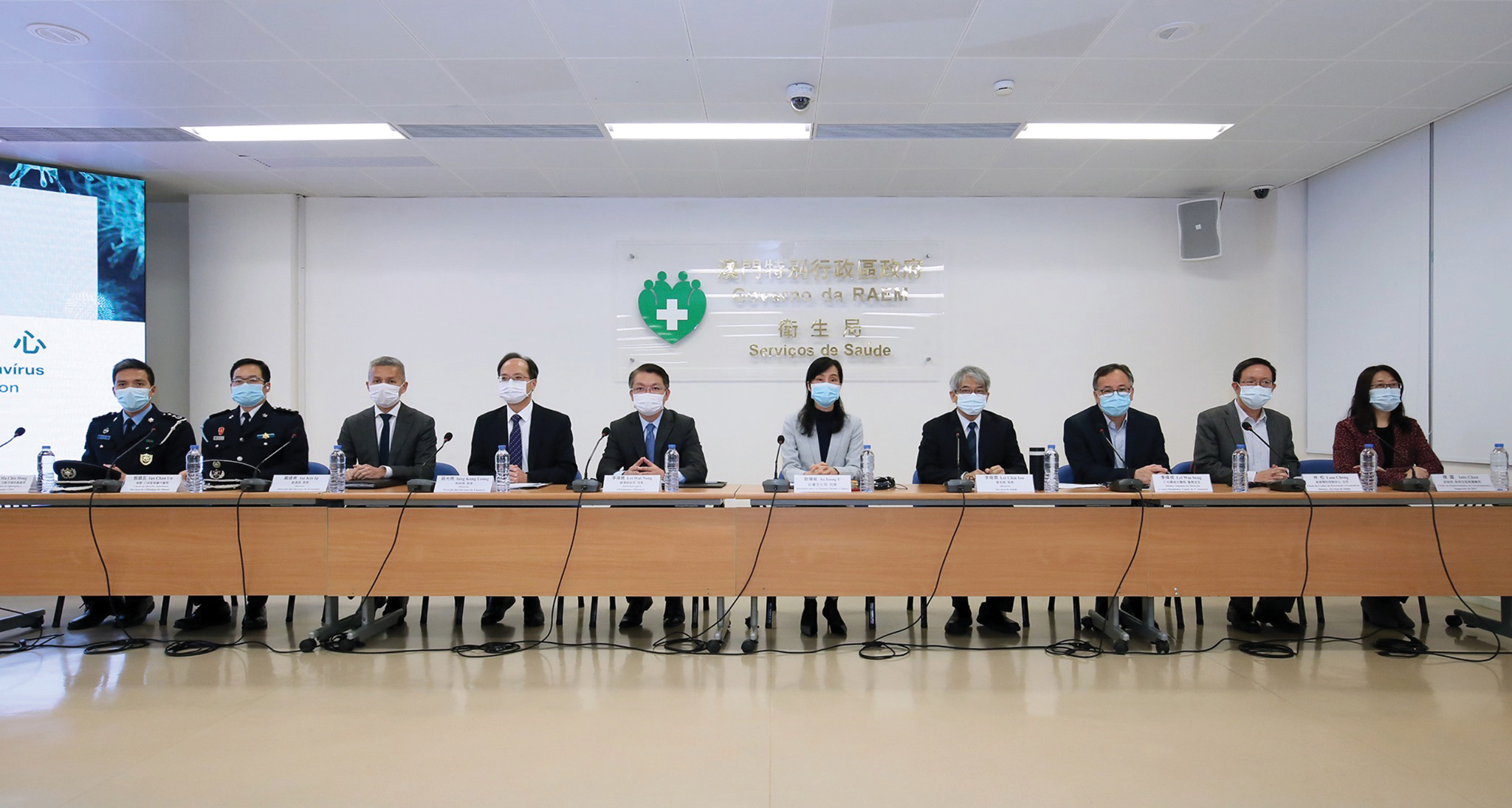
For Nick Lei Leong Wong, president of Macao United Citizens Association, which has a strong link to the local Fujian community, one of the keys to preventing the virus outbreak lies in the hygiene of residential buildings. He says: “We have formed an alliance – comprising more than 200 residential blocks – to enhance the basic knowledge of residents, property management committees and companies [of the buildings] towards the hygiene of public areas. The alliance has achieved quite a lot – for instance, some residents did not wear facemasks at the onset of this virus spread but they have gradually got used to the habit.”
The city’s largest labour group, the Macao Federation of Trade Unions, has kept its eyes on whether the rights of employees have been compromised among others during this period. “Together with our affiliates and service centres, we have talked with our members to know more about their needs in light of the fight against the virus,” says Ella Lei Cheng I, legislator and vice-president of the group. “We have helped some workers to discuss their working arrangements with their employers, which might have been affected economically by the novel coronavirus.” She adds that numerous individuals and companies have contacted the group for donations in terms of protective supplies as well.
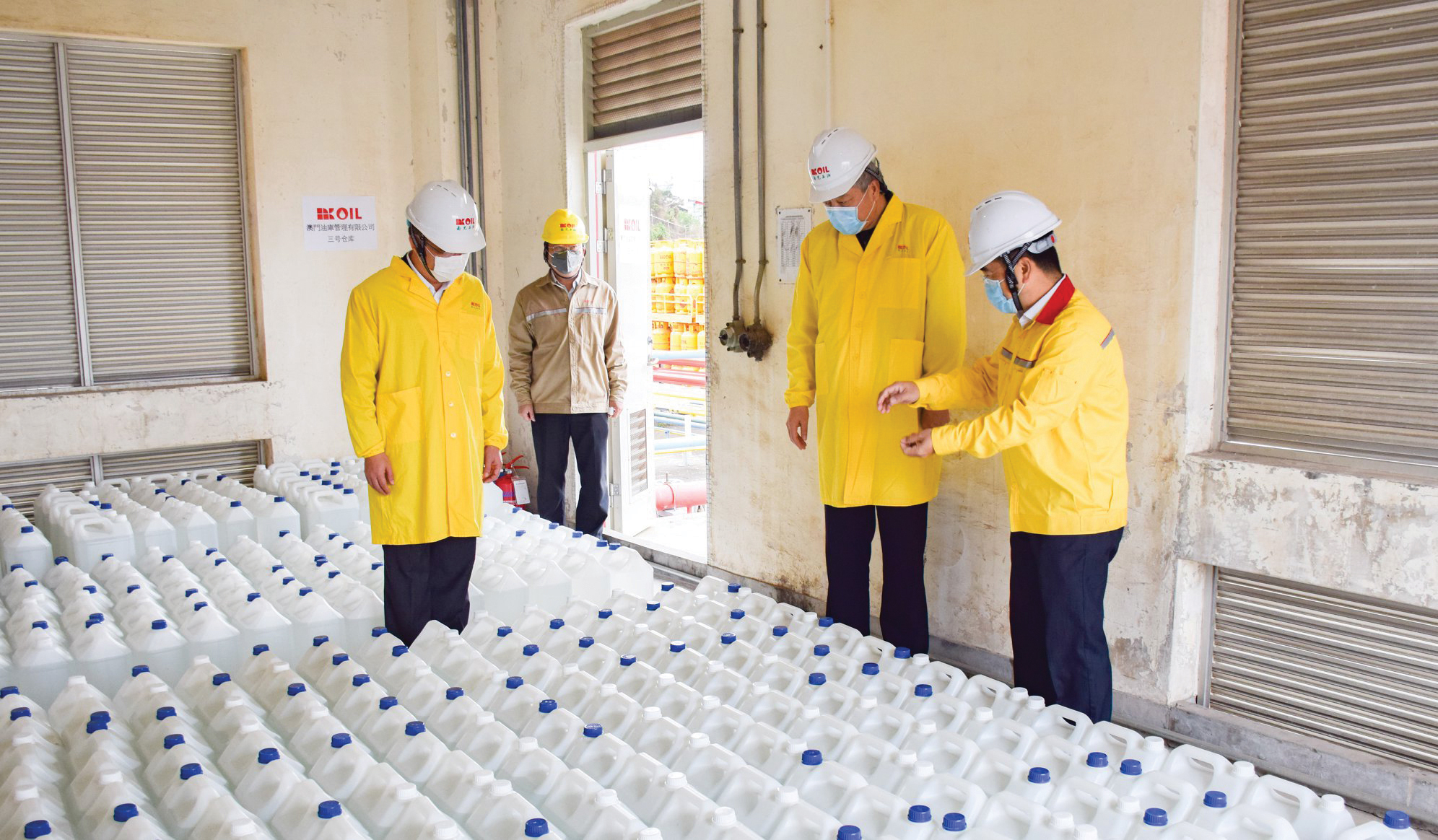
All the six gaming operators have also pledged donations of between MOP 20 and 25 million (US$2.5 and 3.1 million) each in early February to assist with the relief efforts in Mainland China and Macao, as well as providing other supplies and support. And the territory’s lenders have also helped improve the city’s business scene. The Bank of China’s Macao Branch launched in February various financial and loan products with a total amount of no less than MOP 5 billion (US$625 million) for local SMEs and individuals, including MOP 3 million (US$375,000) loans for small companies to stay afloat. The Industrial and Commercial Bank of China (Macau) Ltd also pledged in the same month loan products of at least MOP 5 billion (US$625 million) for SMEs and MOP 15 billion (US$1.87 billion) loans for contracts and engineering firms to accelerate local infrastructure works to spike the economy.
On the subject of banks, it was reported that Macao-based Portuguese bank BNU donated MOP 100,000 (US$12,500) to the Holy House of Mercy of Macau (SCMM), which has been supporting the community since 1569, on 21 February to help the fraternity support the government’s measures against the epidemic. BNU, which is owned by Portugal’s state-owned savings bank CGD, also donated MOP 100,000 (US$12,500) to Catholic social service organisation Caritas Macau a couple of days before and it opened an account to raise funds for the charitable organisation’s activities in support of the government’s measures around the same time. On 18 March, BNU donated MOP 100,000 (US$12,500) to The Women’s General Association of Macao, which has been extremely active in supporting people during the epidemic.
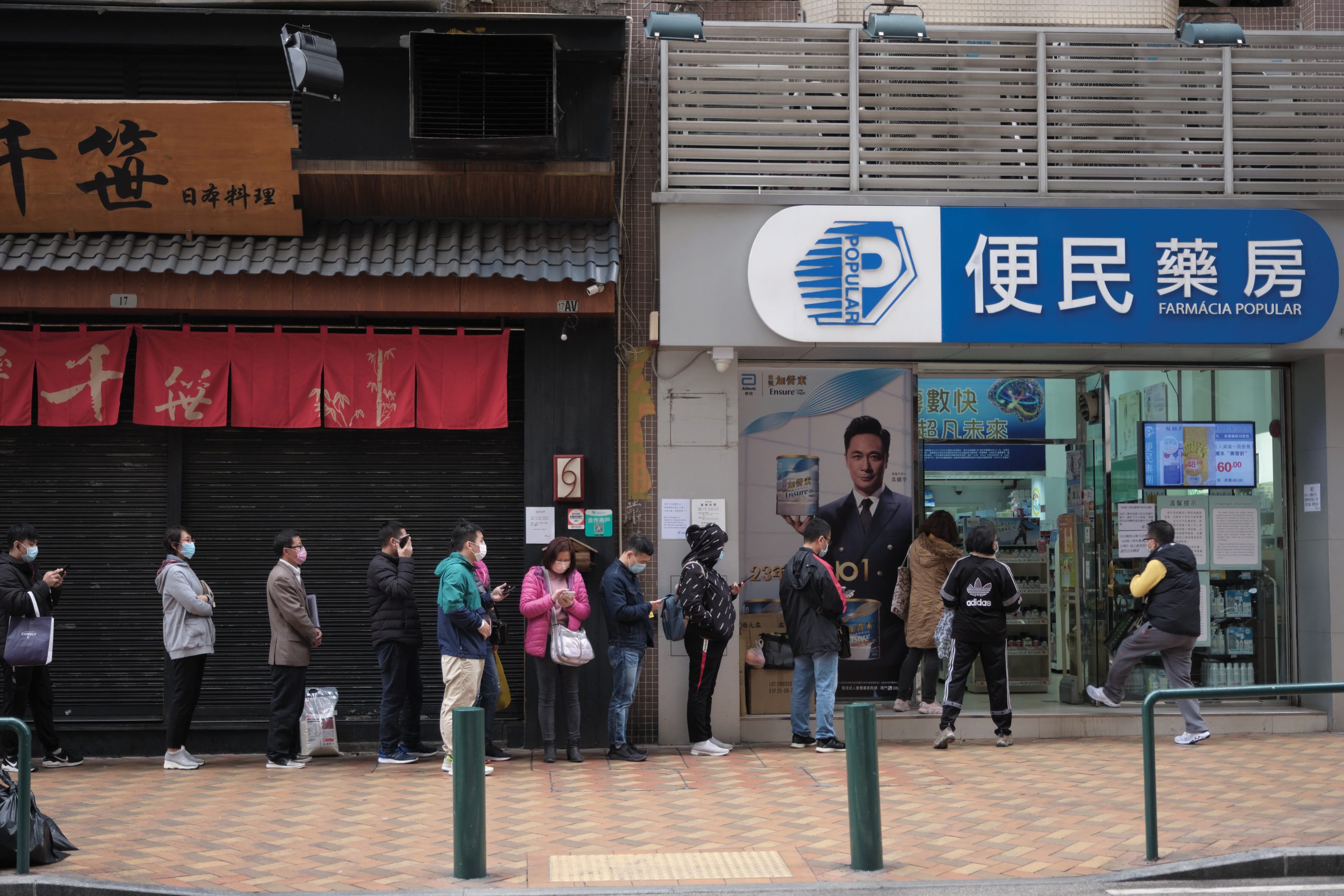
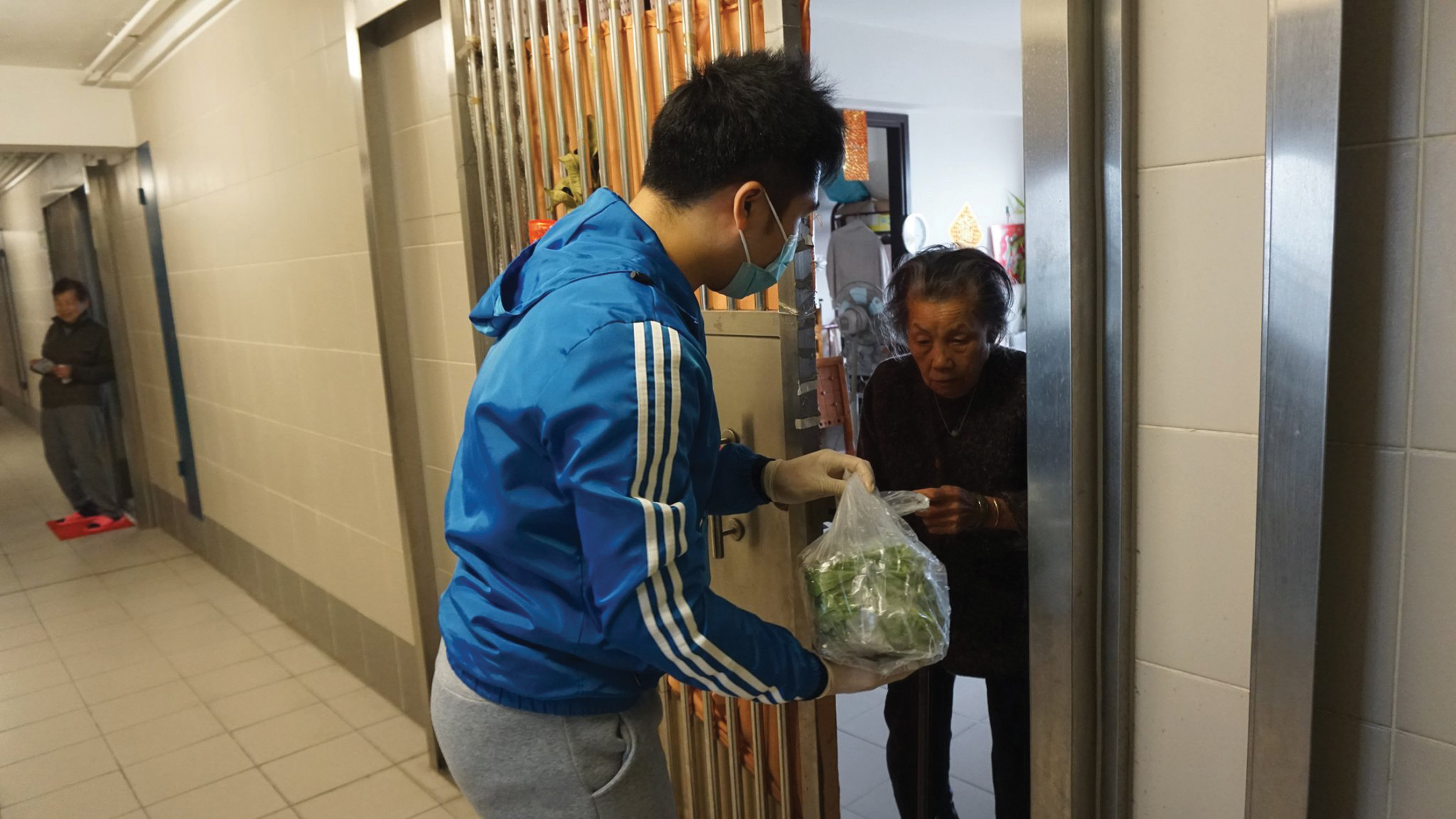
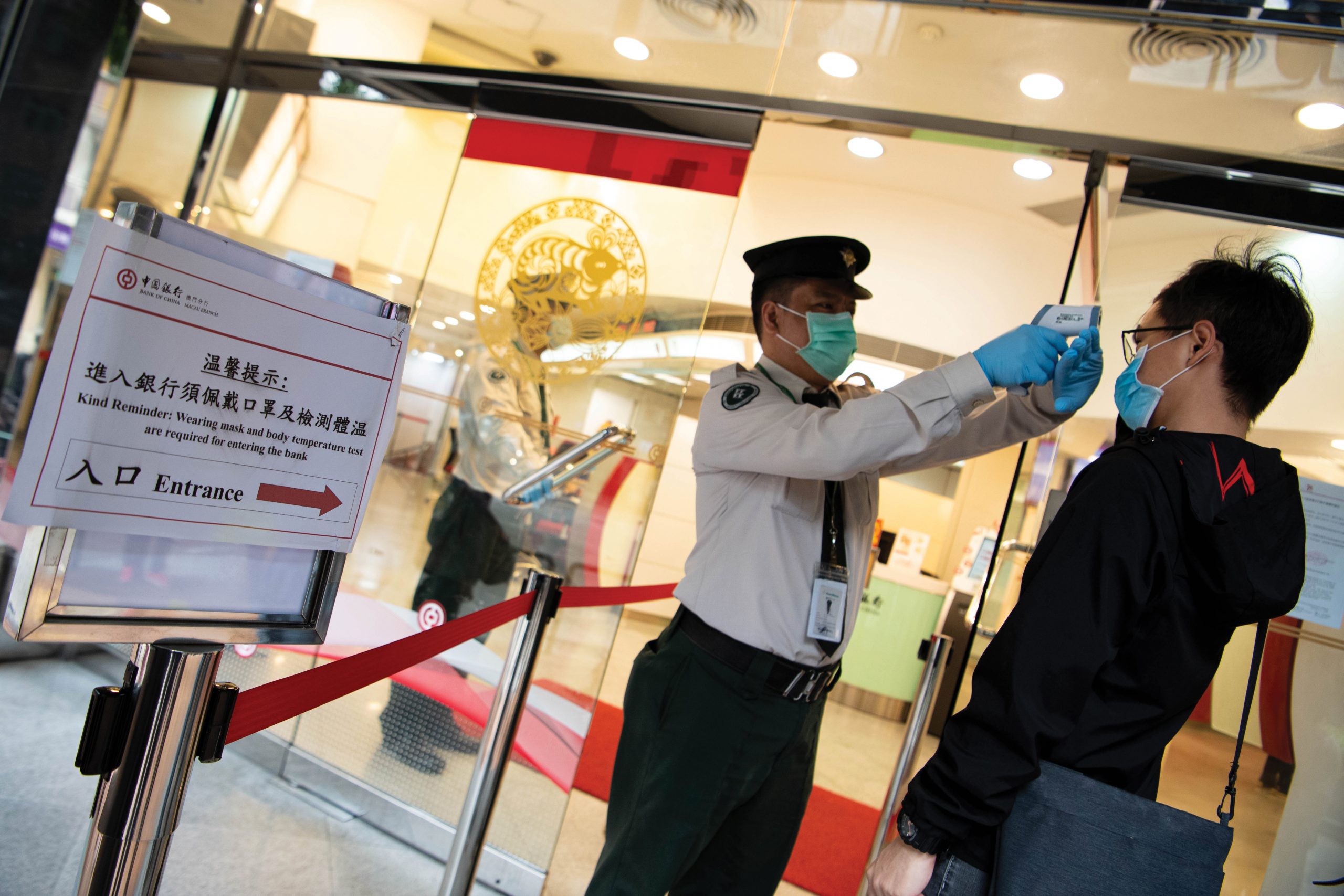
Making a contribution to the community does not always mean making hefty donations, though. Remaining steadfast in your duties and roles also plays a major role in this critical moment. Natalie Wong is a nurse at a daytime elderly care centre run by Kai Fong, who regularly visits the households of senior citizens and helps them clean their wounds and get injections – including at the times of the virus outbreak. “We have all the protective supplies we need,” she says, “including facemasks, hand sanitisers, protective clothings and so forth, so that we can rest assured when doing our job. When we are in the household of the users, we make sure the indoor environment is well ventilated and we wash our hands before and after helping them. I’m just doing my job and trying to help anyone in need in my own capacity.”
“I was a little worried in the beginning because I have to stay around the hospital,” remarks Chou Ya Fan, a local driver working under Kai Fong to provide transportation service for the elderly and people in need between their homes and public hospital. His service has remained business as usual throughout this public health emergency. “When I think of those users – who have troubles visiting the hospital as they don’t have a car and the public transportation service is limited – I feel like this is a way for me to make contributions to the community.”
Fast recovery
The COVID-19 outbreak has and still is wreaking havoc around the world. It might still take weeks and months for the global community to work through the implications of this pandemic when many countries in the West are now rushing to shut down cities to keep a tight rein on the situation.
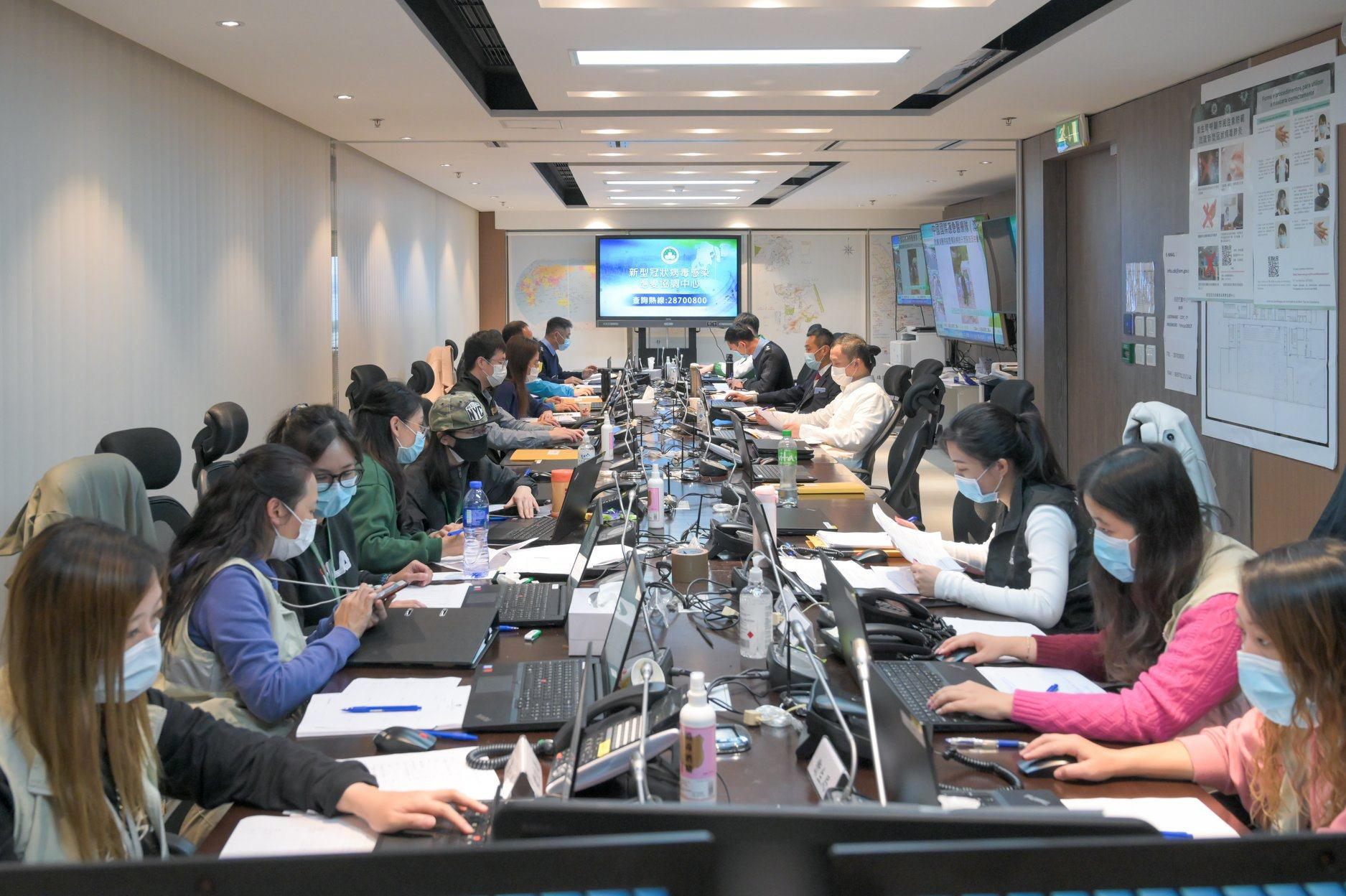
On the other side of the world, Macao is getting back in shape bit by bit – the city has to continue keeping close watch over the surging cases beyond China while the society as a whole has to dip deeper into its bags of tricks to get the local economy roaring again. And of course, with new cases announced in Macao over the past few days before 24 March, there is still some way to go before it can truly be said that life in the territory is ‘back to normal’.
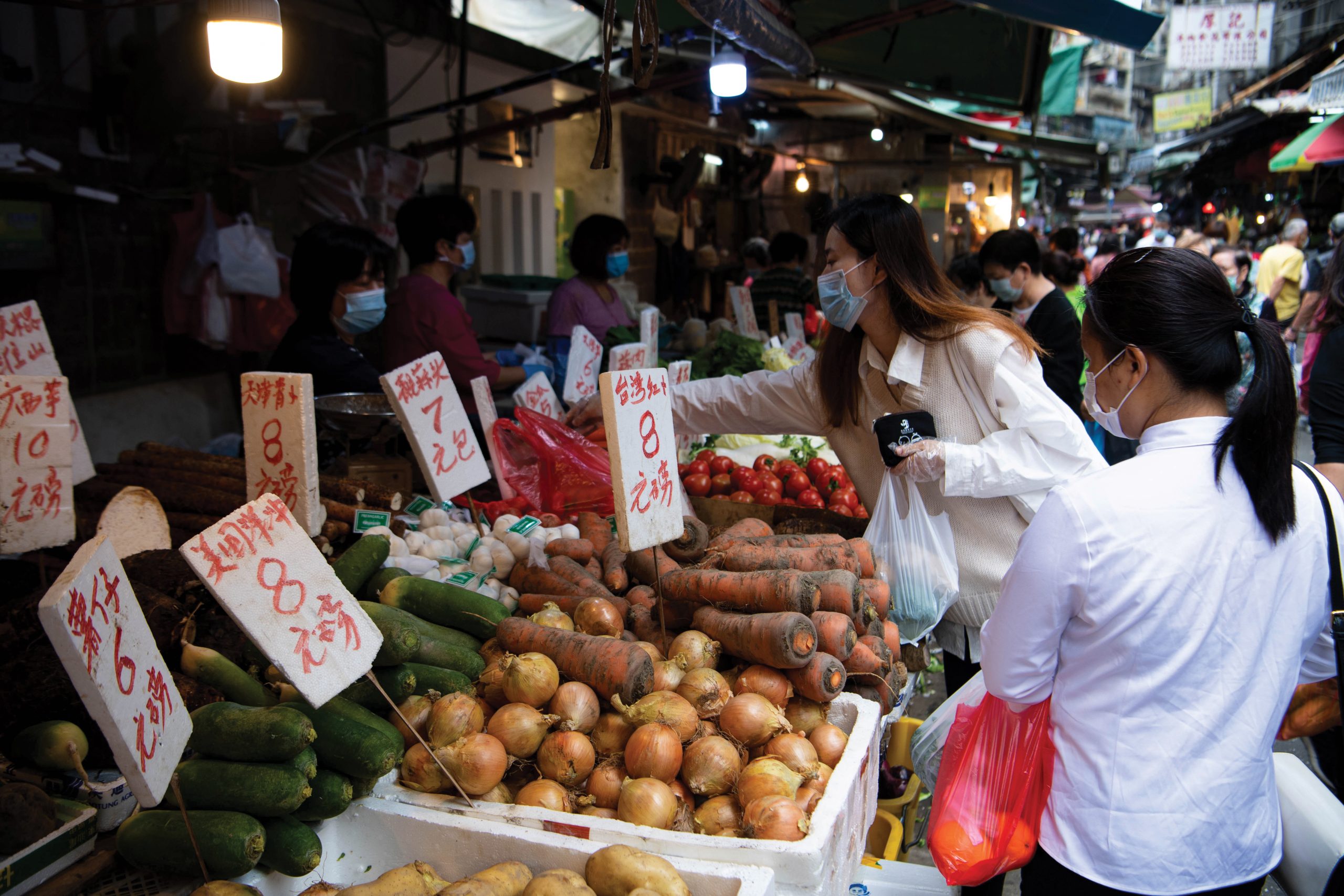
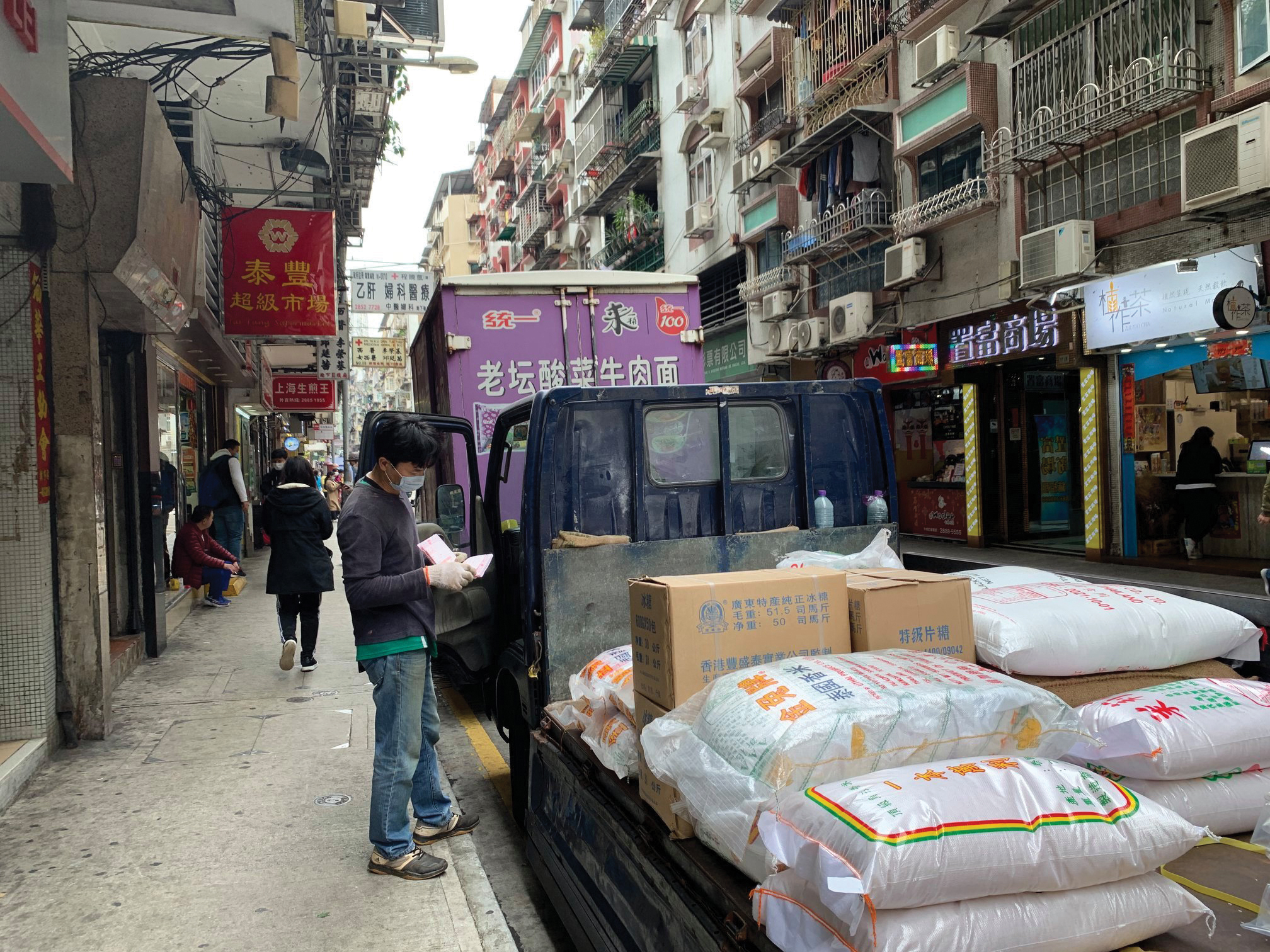
“We have,” says Desmond Chee Shiong Lam, a professor in integrated resort and tourism management at the University of Macau, “conducted ourselves – government, [gaming] operators and residents – well in the midst of the [outbreak] so far. I feel there are more positive lessons than negative. We have learned the need to work together as a community, to sacrifice corporate revenue or personal gain over the greater societal cause. By minimising the damage of the [pandemic], I believe Macao will recover faster than most cities in our region.”
As the UM professor indicates, there is no reason to believe that the Macao community won’t be ‘back to normal’ as soon as possible, thanks to the determination and vigilance of the people and to the quick thinking and effective measures taken by the local government, with support from the central government. Many say the world will be a changed place by the time the epidemic is over and that mankind will have learned some valuable lessons along the way. These people need only look to Macao to see a city that did what it could in the face of adversity and came out closer, stronger and with renewed optimism on the other side.
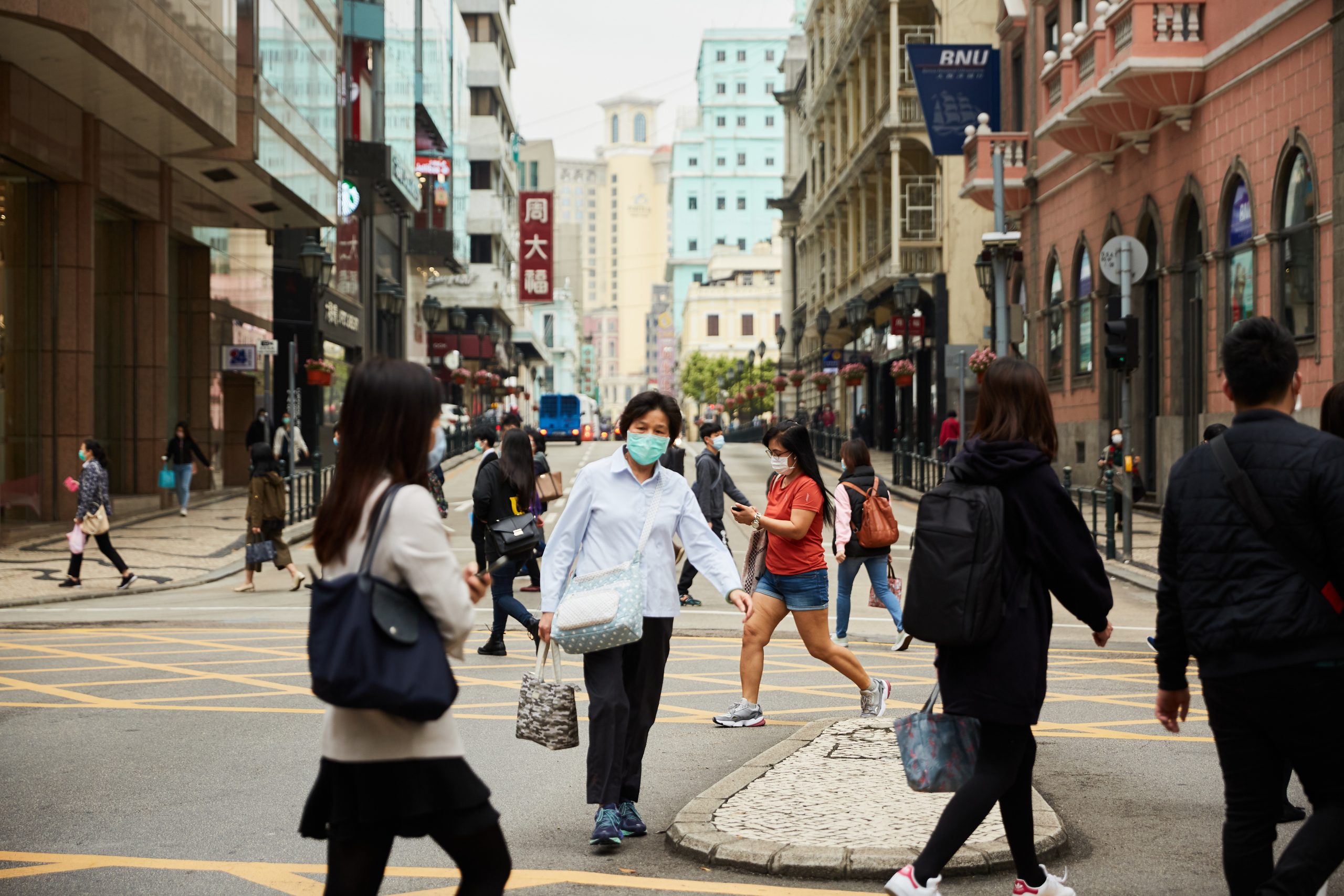
Financial aid
In view of the virus’ impact on the local economy, the government announced on 13 February a string of support measures to relieve financial burdens on individuals and local businesses. Here’s an overview of what was announced…
- The government expects to spend MOP 20 billion (US$2.5 billion) on measures to support Macao’s economy, including increased spending on infrastructure projects.
- Spending is expected to increase to MOP 27 billion (US$3.4 billion) after including the annual ‘wealth-sharing’ handouts that the government will start distributing to citizens next month.
- There will be profit tax deductions of up to MOP 300,000 (US$37,500) for the 2019 financial year, benefitting 2,970 Macao companies.
- There will also be a 70 per cent rebate on 2018 personal income taxes, with a maximum rebate of MOP 20,000 (US$2,500), benefitting 170,000 employees.
- The standard 25 per cent deduction on taxable income granted under Macao’s Professional Tax Law will be increased to 30 per cent for 2020, benefitting
180,000 employees. - Residential households are exempt from paying 2019 property taxes, covering 180,000 households.
- There will be a 25 per cent property tax reduction on commercial units, covering 25,000 commercial premises.
- There will also be a six-month exemption from paying the
five per cent tourism tax, benefitting 854 businesses like hotels, bars and gyms. - ‘Special’ interest-free loans of up to MOP 600,000 (US$75,000) will be offered to local SMEs that have been operating for less than two years. They will be repaid within eight years.
- Annual health vouchers worth MOP 600 (US$75) per person for permanent residents will be given out twice this year instead of the customary annual one-time vouchers.
- The government will fully subsidise all residential households’ water and electricity bills for three months.
- An additional two months of financial assistance will be provided to disadvantaged families assisted by the Social Welfare Bureau.
- MOP 3,000 (US$375) consumption e-vouchers in the form of Macau Pass cards to be issued to each local resident after the epidemic has eased in order to boost local consumption and benefit SMEs in various sectors.
